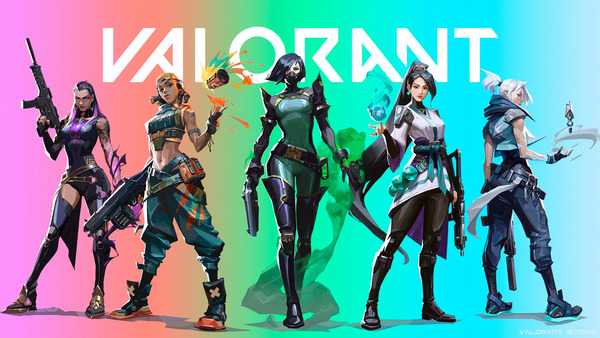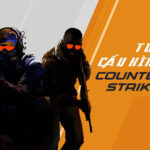Counter-Strike 2 (CS2) is the highly anticipated follow-up to Counter-Strike: Global Offensive (CS:GO), the legendary tactical shooter that dominated esports and multiplayer scenes for over a decade. Released by Valve in 2023, CS2 brings the classic formula of precise gunplay and team-based strategy into the modern era with enhanced visuals, revamped mechanics, and deeper tactical depth.
In this article, we will dive into the full scope of Counter-Strike 2—examining its development journey, gameplay evolution, technical upgrades, esports relevance, and overall impact. We will analyze both the successes and shortcomings of CS2, giving you a comprehensive look at what makes this new chapter in Counter-Strike’s legacy so impactful.
Counter-Strike 2
All trademarks belong to their respective owners.
Advertisement
Popular Now
Latest Reviews
-
 99 Nights in the Forest Script
99 Nights in the Forest is a psychological survival horror game where you must endure 99 mysterious nights in a forest shaped by guilt, memory, and fear. With no clear objective or tutorial, you are left to uncover your past through scattered memories, haunting monologues, and encounters with symbolic entities lurking among the trees.
Each night serves as a narrative chapter, presenting new psychological challenges, environmental shifts, and choices that influence how the story unfolds. Blending poetic storytelling, eerie exploration, and emotional depth, the game becomes less about escaping the forest and more about confronting the trauma that brought you there.
Read full review
99 Nights in the Forest Script
99 Nights in the Forest is a psychological survival horror game where you must endure 99 mysterious nights in a forest shaped by guilt, memory, and fear. With no clear objective or tutorial, you are left to uncover your past through scattered memories, haunting monologues, and encounters with symbolic entities lurking among the trees.
Each night serves as a narrative chapter, presenting new psychological challenges, environmental shifts, and choices that influence how the story unfolds. Blending poetic storytelling, eerie exploration, and emotional depth, the game becomes less about escaping the forest and more about confronting the trauma that brought you there.
Read full review
-
 Roblox: Grow a Garden
Roblox: Grow a Garden is a farming and life-simulation game on the Roblox platform where players create and nurture their own digital gardens. Starting with a small plot of land, players can plant seeds, water crops, and harvest produce to earn in-game currency. This currency can then be used to expand garden plots, unlock new tools, and purchase decorative items, making each garden unique and personalized.
The game focuses on creativity, strategy, and time management. Players can experiment with different crop combinations, create hybrid plants, and participate in seasonal events for exclusive rewards. Trading and co-op gardening allow social interaction, where players can visit friends’ gardens, trade rare seeds, and collaborate on special projects.
With its colorful visuals, relaxing gameplay loop, and community-driven features, Roblox: Grow a Garden appeals to players of all ages. It blends casual enjoyment with strategic depth, providing a rewarding experience for both short play sessions and long-term goals.
Read full review
Roblox: Grow a Garden
Roblox: Grow a Garden is a farming and life-simulation game on the Roblox platform where players create and nurture their own digital gardens. Starting with a small plot of land, players can plant seeds, water crops, and harvest produce to earn in-game currency. This currency can then be used to expand garden plots, unlock new tools, and purchase decorative items, making each garden unique and personalized.
The game focuses on creativity, strategy, and time management. Players can experiment with different crop combinations, create hybrid plants, and participate in seasonal events for exclusive rewards. Trading and co-op gardening allow social interaction, where players can visit friends’ gardens, trade rare seeds, and collaborate on special projects.
With its colorful visuals, relaxing gameplay loop, and community-driven features, Roblox: Grow a Garden appeals to players of all ages. It blends casual enjoyment with strategic depth, providing a rewarding experience for both short play sessions and long-term goals.
Read full review
-
 Palworld
Palworld could evolve from a curious early-access experiment into a genre-defining masterpiece.
Read full review
Palworld
Palworld could evolve from a curious early-access experiment into a genre-defining masterpiece.
Read full review
-
 PEAK
A powerful framework for personal mastery, but one that requires balance, self-compassion, and constant recalibration.
Read full review
PEAK
A powerful framework for personal mastery, but one that requires balance, self-compassion, and constant recalibration.
Read full review
-
 ARK: Survival Ascended
A beautiful, ambitious remake with both legacy charm and modern flair.
Read full review
ARK: Survival Ascended
A beautiful, ambitious remake with both legacy charm and modern flair.
Read full review
-
 Counter-Strike 2
Sharp, nostalgic, and full of competitive potential.
Read full review
Counter-Strike 2
Sharp, nostalgic, and full of competitive potential.
Read full review




























